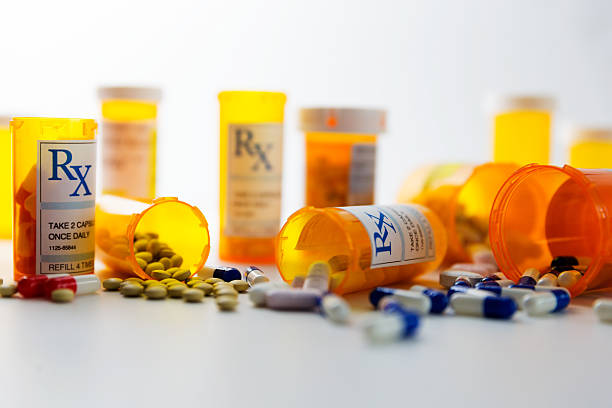
FOR IMMEDIATE RELEASE: Sun Pharmaceutical Industries, Inc. (Sun Pharma) recently filed a lawsuit in New Jersey federal court against a number of independent pharmacies for alleged violations of RICO, a law designed to facilitate the prosecution of far-flung criminal organizations such as La Cosa Nostra and MS-13. In a nutshell, Sun Pharma alleges that the defendants returned short-dated Sun products for wholesaler credits that exceeded what those pharmacies had paid for the drugs.
With the filing of a public lawsuit, however, Sun Pharma's purported folly in over-paying refunds has been eclipsed by an even more colossal blunder: Sun Pharma has unwittingly implicated itself and its business partners, including Cardinal Health, in an illegal conspiracy to bribe pharmacies in violation of the federal Anti-Kickback Statute (AKS) and potential state, commercial bribery statutes. Specifically, Sun Pharma induced pharmacies to purchase its products by promising them refunds for drugs that had gone unsold by the time of expiration. As a further inducement, Sun Pharma offered refunds based on the prevailing wholesale acquisition cost (WAC) at the time of return, rather than pharmacies' lower acquisition costs.
Sun Pharma's scheme, and that of certain other manufacturers, has long been an open secret in the industry, but apparently has not yet resulted in regulatory scrutiny. That may change now that Sun Pharma has exposed itself. Indeed, in a recent Advisory Opinion, the Department of Health and Human Services, Office of Inspector General, reaffirmed that a manufacturer refund program "would generate prohibited remuneration under the Federal anti-kickback statute" and "is not protected by a safe harbor." OIG Advisory Opinion, No. 24-04. In that case, however, the OIG issued a favorable no-action letter because the drug at issue was a regenerative tissue-based therapy for an ultra-rare primary immunodeficiency disorder with a shelf-life of only three hours.
In contrast to the limited refund program described above, Sun Pharma's refund program worked very differently. According to Sun Pharma's Return Goods Policy, it offered refunds across broad drug categories, including: (1) unopened product with seals intact within six months of the expiration date; (2) overstock product within 12 months prior to expiration date; (3) products damaged during shipping to the customer; and (4) products received due to shipping error. Moreover, Sun Pharma's Policy stated that "credit will be issued in the form of a credit memo based on current prevailing cost or the net cost of acquisition to the customer, whichever is lower."
Contrary to its own Policy, Sun Pharma never required customers to provide their acquisition costs, only the WAC value of the return. In addition, Cardinal was compensated based on WAC values for funneling manufacturer kickbacks to customers in the form of "credit memos" which, in turn, required Cardinal's customers to purchase more product, including product they had originally purchased elsewhere, from none other than Cardinal itself. Furthermore, Sun Pharma never required purchase dates, only expiration dates, for product returns. Accordingly, Sun Pharma can hardly be heard to complain that pharmacies purchased product, including short-dated product, for less than the amount of Sun Pharma's refund: that was one purpose of Sun Pharma's kickback scheme!
In summary, because Sun Pharma offered refunds to pharmacies for drugs they had purchased, sometimes years earlier, upon expiration of those products, Sun Pharma violated the law by offering "prohibited remuneration under the Federal anti-kickback statute" that "is not protected by a safe harbor." Unlike the applicant in the OIG Advisory Opinion described above, Sun Pharma has not received a no-action opinion from the OIG relating to its returns program, and likely would not obtain such an opinion given the drastic differences between the OIG-approved manufacturer refund program and Sun Pharma's program. In addition, further compounding Sun Pharma's violation, its program was operated to pay refunds based on higher costs than the amounts pharmacies had paid to acquire the drugs. This means that Sun Pharma not only induced pharmacies to purchase drugs with the promise of refunds, it also attempted to sweeten the bribe even more by offering refund credits pegged to higher costs than the prices pharmacies had paid for the drugs.
Accordingly, Sun likely will be receiving a subpoena in short order (if it hasn't already) from federal regulators, who will want to probe whether such manufacturer refund programs incentivized the purchase of medications that were subsequently reimbursed by Medicare and Medicaid. Sun Pharma is not alone, and numerous other generic manufacturers and wholesalers may be swept-up in any ensuing federal investigation. Indeed, one of the participants in Sun Pharma's scheme, Cardinal Health, recently paid $13 million to settle allegations that it had violated the Anti-Kickback Statute by paying up-front rebates, or "prebates," to oncology practices that agreed to purchase drugs from Cardinal. Hence, Sun Pharma's lawsuit may represent one head-scratching mistake after another, and prove far more costly to the Company and its business partners than the amount Sun Pharma paid out in product-return kickbacks.
Finally, Sun Pharma is a publicly traded company, and whether kickbacks paid on "ineligible" product returns had a material impact on financial reporting is unclear. Prior years' audit reports for Sun Pharma state: "The Company estimates the level of sales that will ultimately be returned, pursuant to its return policy, and records a related allowance at the time of sale. These amounts are deducted from its gross sales to determine net revenues. These estimates take into consideration historical returns of the products and the Company's future expectations. The Company periodically reviews the allowances established for returns and adjusts them based on actual experience, as necessary." Hence, in addition to scrutiny by federal healthcare regulators, Sun Pharma's lawsuit also may back-fire by prompting shareholder ire.
MORE ARTICLES BY CATEGORY
The 2025 Healthcare Fraud Takedown Is a Warning Shot for Wound Care Providers
Wound care is now an enforcement priority. The 2025 fraud takedown targets skin substitute billing, graft utilization, and Medicare compliance.
Read More >>FDA and Novo’s Uncharted Waters to Exert Pressure on Hims & Hers and GLP-1 Compounders
Novo’s lawsuit against Hims & Hers, coupled with FDA’s referral to the DOJ, marks a direct escalation against 503A compounded semaglutide. If your pharmacy dispenses, compounds, or markets GLP-1 therapies, this is not a headline, it is a regulatory turning point.
Read More >>What Wells Pharma v. Zyla Life Sciences Means for Compounding Pharmacies and Outsourcing Facilities
A pending Supreme Court case could reshape how compounding pharmacies face litigation under state unfair competition laws tied to FDA approval standards.
Read More >>Health Law Alliance Welcomes Compounding Expert Pharmacist-Attorney Dr. Martha Rumore as Of Counsel
Health Law Alliance adds powerhouse Pharmacist/Attorney Dr. Martha Rumore to their team of boutique healthcare attorneys.
Read More >>







